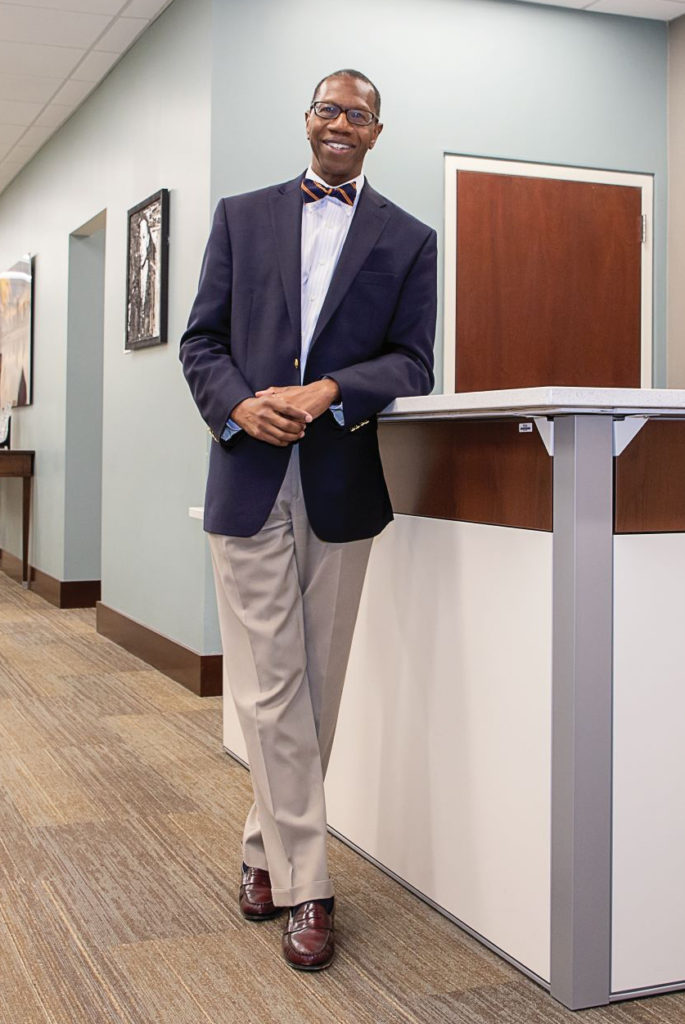
DR. WILL ROSS
Nephrologist
Washington University School of Medicine
Dr. Will Ross knows all about the social and economic barriers that become obstacles to health care in underserved communities. And he makes sure medical students at Washington University School of Medicine know about them, too.
His own early experiences in a violent, low-income neighborhood inspired him as a physician, a professor of medicine and as associate dean of diversity; and understanding and treating underserved patients has become part of the medical school’s curriculum.
In 1996, Ross founded the Saturday Neighborhood Health Clinic for the sick and uninsured, where medical students volunteer and gain hands-on experience. He recently developed Washington University Medical Plunge, which exposes students to poor, racially segregated neighborhoods in the city.
Ross himself escaped such circumstances after he received a scholarship to attend Phillips Exeter Academy. He also received a scholarship to Yale University, earning a degree in biology, and Washington University, earning a medical degree. And the rest, as they say, is history.
Career Path
I was around 5 when I decided to become a physician. I stayed remarkably focused and disciplined, despite the terrible life events that could have easily derailed my dreams – moving multiple times to tenements in inner-Memphis, surviving street fights and knifings, wondering where my next meal was coming from. If anything, those events strengthened my resolve to become a physician.
Biggest Mentor
While I have tried to fashion my life after Dr. Martin Luther King Jr., Alfred and Shirley Wexner, owners of an international shoe company in Memphis, were my first true mentors. They were active in the civil rights movement and made sure I was knowledgeable about the key people in the movement, and helped cement my commitment to social justice. My contemporary mentors include Dr. Bill Peck, former dean of Washington University School of Medicine, Dr. Bill Danforth, former chancellor of Washington University, and Dr. Donald Suggs, publisher of the St. Louis American.
Biggest Impact
Unquestionably, it has been mentoring medical students at Washington University over the past 23 years. These incredibly bright, thoughtful and industrious students will advance the issue of equity in health care in ways that I can only dream of. I have poured myself into pipeline programs like the Collegiate School of Medicine and Bioscience that will generate the next generation of leaders.
Future Goals
I am working to expand Washington University Medical School’s community engagement footprint, to sustain current community partnerships and create new ones that advance the health of those living in distressed and under-resourced neighborhoods. In the long term, I hope to continue the work we started at the Centers for Disease Control, when we incorporated social determinants of health into Healthy People 2020.
Favorite Pastime
Traveling with my family. Whether to London, Paris, Florence or Istanbul, those are the memories that we carry forever. I never tire of going to Haiti and working with public health leaders in Cap-Haitien, and I enjoy distance running. My wife and I enjoy jazz concerts and art shows.
Memorable Life Moment
Holding our adopted daughter in my arms. My wife and I adopted Merris when she was 5 weeks old. My wife had recently had a late-term miscarriage, so she was truly a gift to us. All else in my life pales in comparison.
Print edition now on stands! Click here for the complete digital version of the magazine, also available on our homepage.
